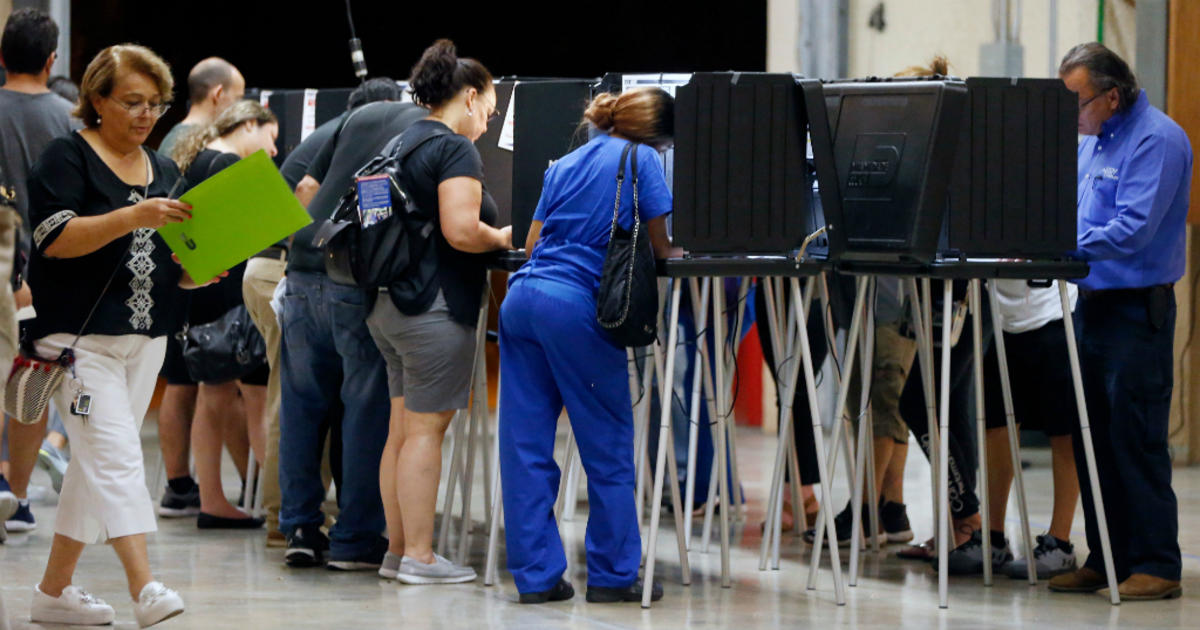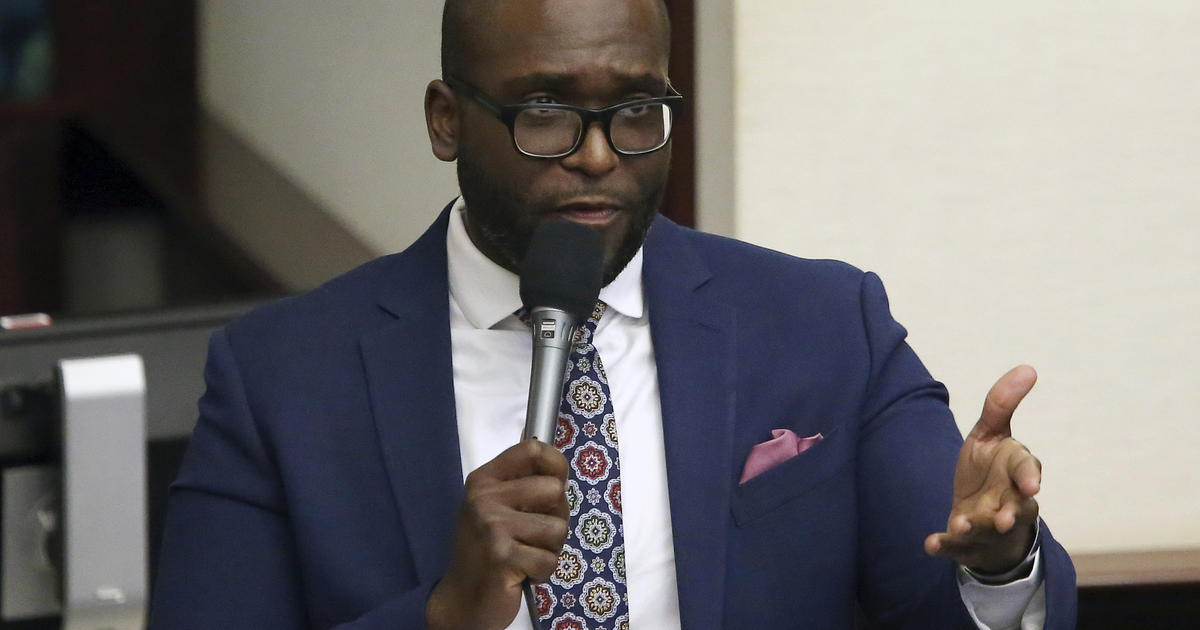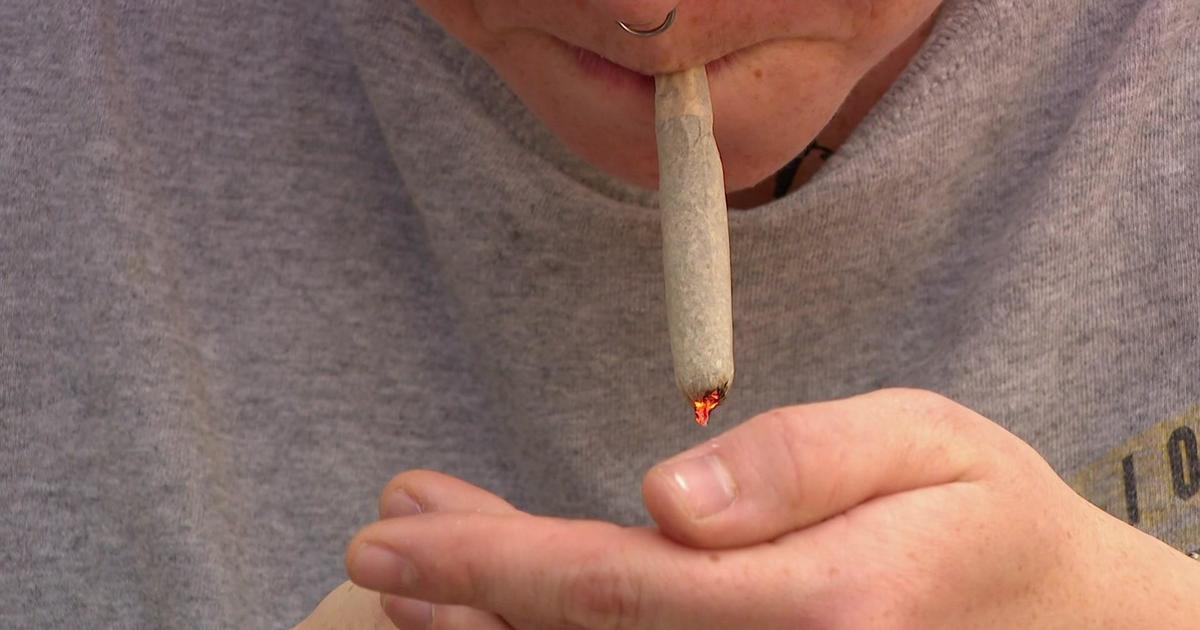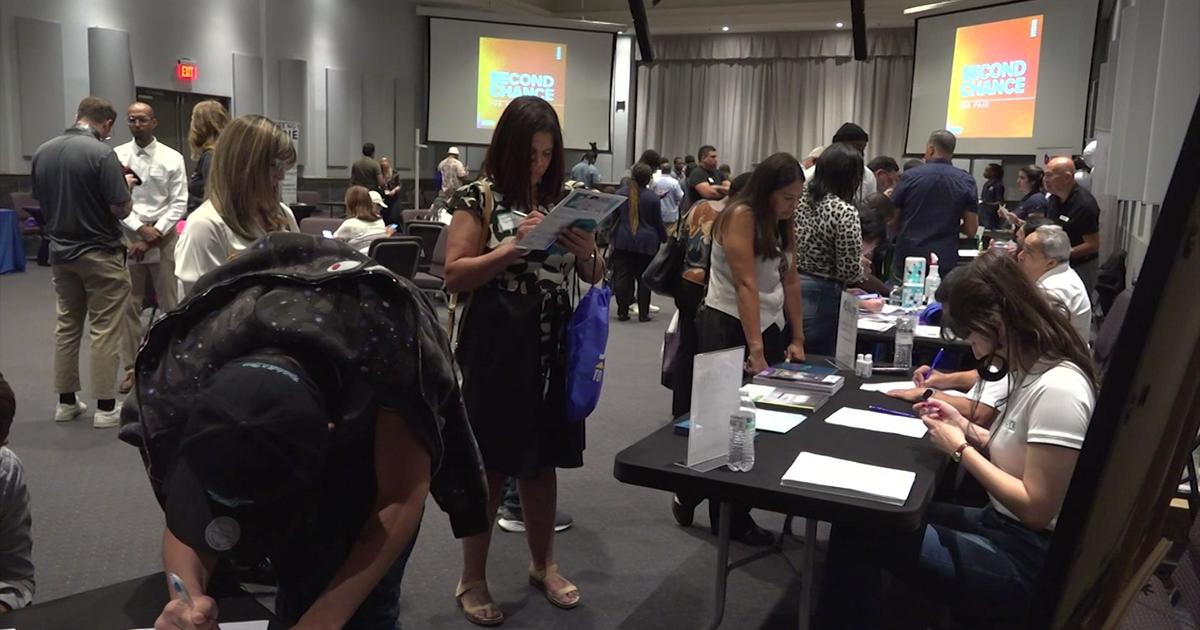Florida Senate Makes Changes Amid Felons' Voting Debate
TALLAHASSEE (CBSMiami/NSF) -- Everyone agrees a constitutional amendment that appeared on the November ballot was designed to automatically restore the right to vote for some of Florida's convicted felons.
But a sharp divide over who exactly the amendment was aimed at has become one of the 2019 legislative session's most contentious issues.
House Republican leaders believe the proposal, which appeared on the ballot as Amendment 4, was aimed at felons who've completed all the terms of their sentences, including repayment of all financial obligations. They're relying on words in the ballot initiative and what backers of the measure said in court and on their website before and after more voters approved the measure.
But the amendment's supporters are also relying on language in the proposal, which they maintain is less restrictive than the GOP plans to carry it out. They've likened House and Senate proposals to Jim Crow-era policies, such as "poll taxes," aimed at keeping black voters from casting their ballots. In this case, the amendments' supporters say, lawmakers are trying to exclude low-income felons from the automatic rights restoration process.
On Monday, a key Senate panel made what appeared to be significant concessions toward what proponents of the measure --- who maintain that the amendment does not need legislation to take effect --- had sought.
The constitutional amendment granted restoration of voting rights to felons "who have completed all terms of their sentence, including parole or probation." The voter-approved amendment excluded people "convicted of murder or a felony sexual offense."
Wordsmithing over what constitutes "murder," "felony sexual offense," and completion of "all terms of their sentence" is the source of the firestorm.
The Senate Judiciary Committee on Monday revised an earlier version of a Senate bill (SB 7086) to strip out attempted murder as an offense that could prevent felons from getting the right to vote. The proposal, approved by the committee in a party-line, 3-2 vote, also eliminated fees and fines that have been converted to civil liens from the financial obligations that felons would have to repay to be eligible for voting restoration.
And the Senate plan would define felony sexual offense as a crime that "serves as a predicate to registration as a sexual offender," while the House's version of the proposal (HB 7089) includes more than three dozen sex-related crimes, including a third conviction of prostitution.
Both the House and Senate measures would require full payment of restitution, including restitution that has been converted to a civil judgment, the main point of contention during Monday's vetting of the bill.
With time running out in the committee meeting, Desmond Meade, executive director of the Florida Rights Restoration Coalition, spoke on behalf of dozens of the amendment's supporters who didn't have a chance to address the Senate panel.
Meade, a felon whose voting rights were restored as a result of the amendment's passage, said he and other "returning citizens" turned to the ballot initiative because the "Florida Legislature refused to act."
"They walked away from people like me who served our time and all we wanted to do was just be part of this democracy, and all we wanted to do was move on with our lives. But the Florida Legislature ignored our cries, ignored the cries of our family, for years and years and years," an emotional Meade, choking back tears, said.
Meade and others called the Senate proposal a step in the right direction, but they remained opposed to the bill because of the requirement of full repayment of restitution.
Meade pointed out that 5.1 million Floridians supported the constitutional amendment.
"They were votes that were based on love, forgiveness and redemption," he said, adding that felons have "done our time and .. just want to move on."
He pleaded with lawmakers to "look beyond the partisan politics" and "stop that partisan drumbeat from drowning out the voices of the people."
But Sen. Jeff Brandes, a St. Petersburg Republican who's sponsoring the legislation, said the Senate measure reflects what former University of Florida law school dean Jon Mills told the Florida Supreme Court during an argument of the proposal and on information provided to the public by backers of the amendment.
Brandes remained in the committee room after the meeting ended to speak with advocates, at his invitation, who lined up to share their frustrations about the legislation.
"I was a supporter of Amendment 4. But I truly believe this language needs to be clarified. The simple fact is that I can't get a straight answer for what the definition of 'murder' is. That is just telling about some of the deeper questions that have to be answered here. And the Legislature has the responsibility to put forth their ideas, hear from the public, refine and hone this legislation as we put an implementing bill forward," Brandes, who has long been an advocate for criminal justice reform, told The News Service of Florida.
Brandes said he thinks the Senate is "moving in the right direction," and that the House and Senate still have "many, many conversations" ahead before they reach consensus on a final bill.
The House plan goes further by requiring full payment of fines and fees that have been converted to civil judgments and including the laundry list of sex-related offenses not covered by the Senate measure.
Even if the House and Senate finally settle their differences before the legislative session ends on May 3 as expected, that may not be the end of the debate on the issue.
"I think everybody expects that this all will probably end up back before the Supreme Court at some juncture. We're going in, providing what we think is the voters' intent here, as we clarify those three areas. What does all terms of sentence mean? What does murder mean? And what is felony sex offense?" Brandes said. "I fully expect at some juncture (it) will be litigated."
(©2019 CBS Local Media. All rights reserved. This material may not be published, broadcast, rewritten, or redistributed. The News Service of Florida's Dara Kam contributed to this report.)



